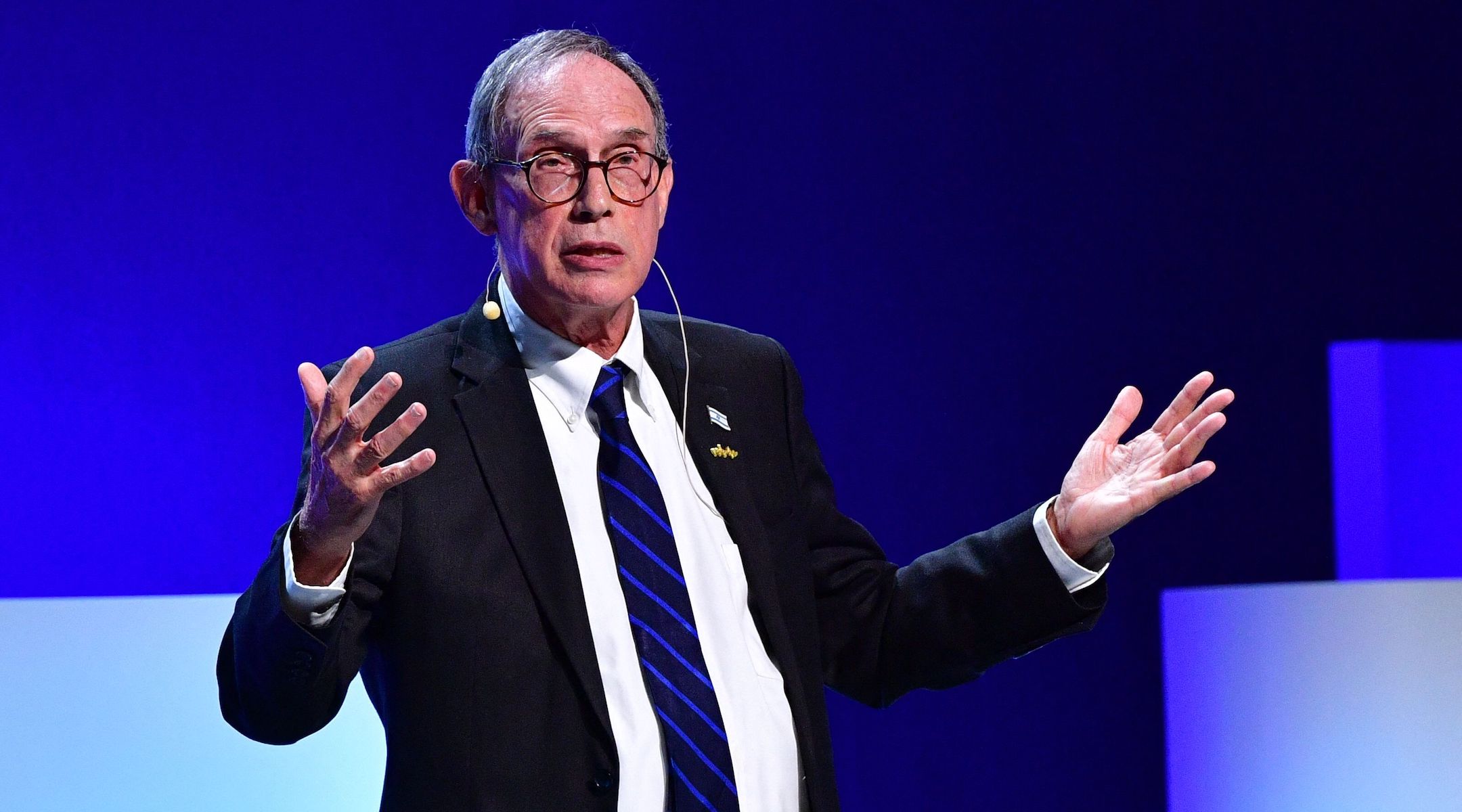JERUSALEM (JTA) — With only a short time before he is expected to leave office when a new Israeli government forms, the man responsible for building ties between the world’s Jews and the state of Israel did not hold back Monday night about how hard that task could soon become.
Nachman Shai, Israel’s outgoing minister of diaspora affairs, was speaking to Jewish journalists from around the world who had gathered in Jerusalem for a conference. Shai, who has a background in journalism and previously served in the Knesset as part of Israel’s Labor party, said he finds “alarming” the approach that Benjamin Netanyahu, the incoming prime minister, is taking as he forms a right-wing government that includes extremist partners.
“Some of the elected officials lack sufficient experience and in any opinion, some of the coalition’s demands contradict and even contravene the democratic character of the state of Israel,” Shai said. “They have been given a playground of powers; they are high on zeal and euphoria. It is alarming, it is dangerous and it will potentially damage our relationship with the global Jewish world and the international entente and the very future of the state of Israel.”
Shai’s comments are in line with those he has made repeatedly about Netanyahu, who was prime minister for 12 years until 2021, since Netanyahu won Israel’s Nov. 1 election and proceeded to start building a coalition with the extremist politicians.
Netanyahu, Shai told the Times of Israel last month, “made some mistakes. [Former Israeli ambassador to the United States Ron] Dermer made some mistakes. Together they made a decision to get closer to the Evangelicals than to the Jewish population. I think that’s the wrong orientation.”
Among the issues he has criticized were Netanyahu’s approach to the “Western Wall compromise,” in which an egalitarian prayer section was supposed to be set up for Reform and Conservative Jews at the Western Wall. Its implementation has been stalled by Orthodox parties in Israel for years, and members of the incoming government have said they are not interested in catering to non-Orthodox Jews.
”I’m a political person, so I have to say that I blame the previous governments for neglecting the aspects of Jewish Diaspora in running their business in Israel,” Shai told the Jerusalem Post in an interview Monday morning, citing the Western Wall as a key site of inattention.
“First and foremost, I am concerned that the incoming government will damage the ties between the Jewish global community and Israel,” Shai said in a welcome address at the fifth annual Jewish Media Summit, which is run by Israel’s Government Press Office. “And not necessarily intentionally, but partly as a result of differences in ideology, partly as a result of political affiliation and partly because of ignorance and unwillingness to understand the situation on the ground.”
In warning about the potential breach between Israel and many Diaspora Jews, Shai joins a long list of people who have expressed concern. On Monday, that list grew to include hundreds of American rabbis who released an open letter in which they committed to take action against extremists in the Israeli government, including by not inviting politicians from far-right parties to their synagogues. They name Otzma Yehudit, the party headed by Itamar Ben-Gvir, as a particular target of their protest but said it would not be limited to just one party.
“When those who tout racism and bigotry claim to speak in the name of Israel, but deny our rights, our heritage, and the
rights of the most vulnerable among us, we must take action. We must speak out,” wrote the rabbis.




